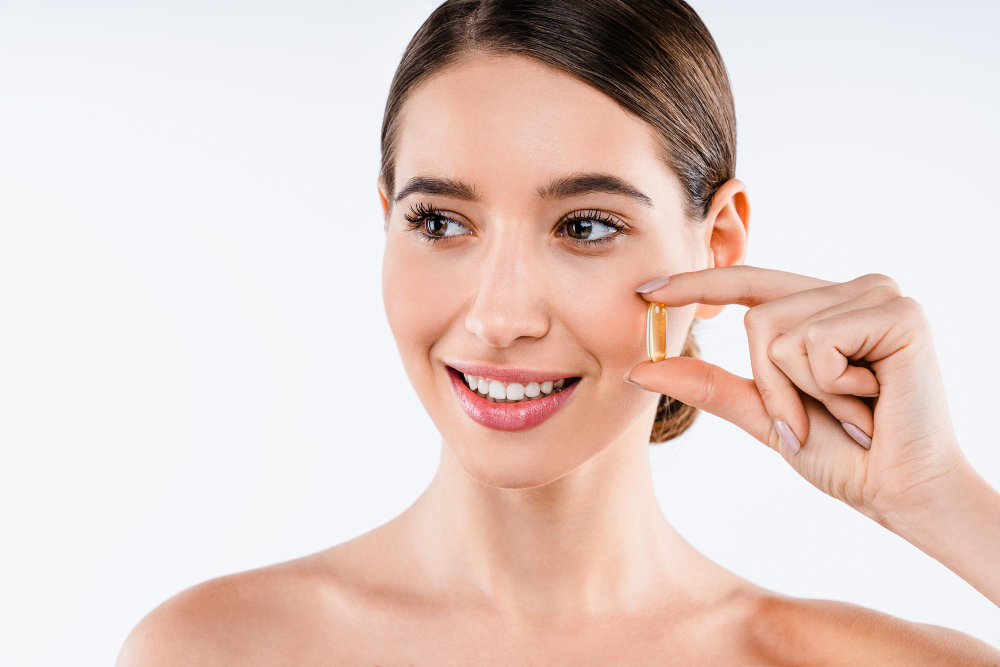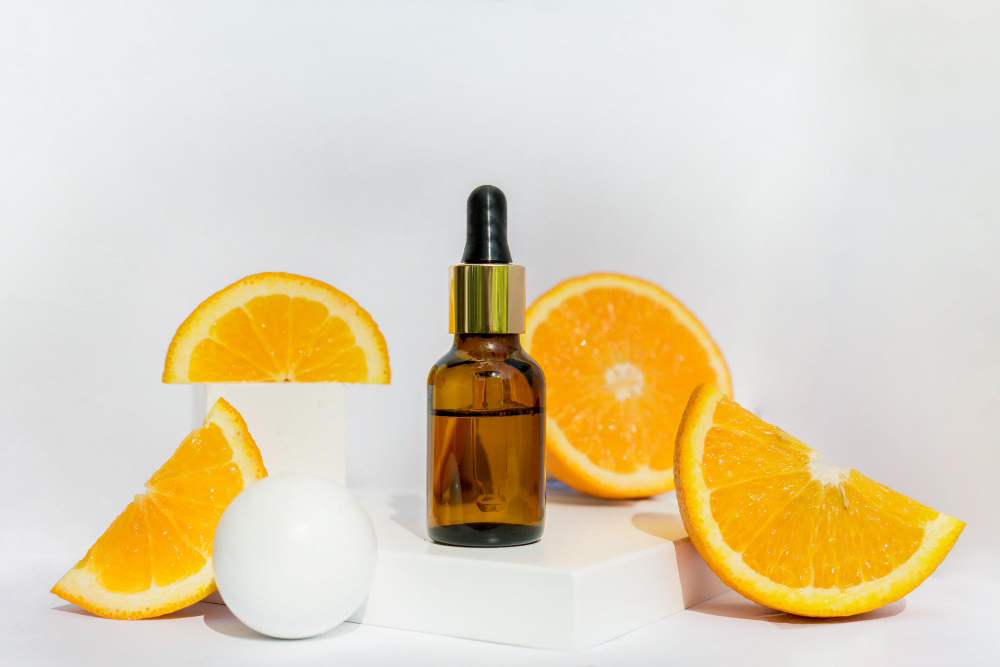Are you tired of battling persistent acne and searching for a reliable solution? Look no further than the transformative potential of Vitamin C for acne. In this comprehensive guide, we delve into the intricate relationship between Vitamin C and acne, exploring its multifaceted benefits and the scientific evidence supporting its use. Acne, a common skin woe affecting millions, can be a relentless adversary. But armed with the knowledge contained within these pages, you’ll discover how Vitamin C might just be the missing piece in your skincare puzzle.
Understanding Acne
Before we go into the potential advantages of Vitamin C for acne, let’s first get an overview of this common skin problem. Acne is identified by pimples, blackheads, whiteheads, and, in severe situations, painful cysts. It usually happens when hair follicles get blocked with oil and dead skin cells, resulting in an ideal habitat for acne-causing bacteria to grow.
The Role of Vitamin C for Acne
Vitamin C is a versatile antioxidant crucial for various bodily functions. Among its many roles, it plays a significant part in maintaining skin health and collagen production. But does Vitamin C help with acne? Continue reading to further explore the benefits of vitamin C for acne.
What is Vitamin C?
Vitamin C, scientifically known as ascorbic acid, is a potent antioxidant with multifaceted roles in various bodily functions. Beyond its renowned immune-boosting properties, Vitamin C plays an indispensable role in the growth, development, and repair of all body tissues, including the skin. Moreover, it actively contributes to the formation of collagen, a vital protein that maintains the health of our skin, cartilage, and blood vessels.

Antioxidant Properties
One of the primary reasons behind the buzz surrounding Vitamin C as an acne remedy lies in its powerful antioxidant properties. Antioxidants are the skin’s defense against free radicals, unstable molecules capable of causing significant damage to skin cells and hastening the aging process. By neutralizing these free radicals, Vitamin C potentially contributes to a healthier complexion and the reduction of inflammation, a key player in acne management.
Collagen Production
Collagen, often dubbed the skin’s structural scaffold, provides it with elasticity and firmness. Low collagen levels can lead to sagging skin and the formation of wrinkles. Here’s where Vitamin C steps in – it actively stimulates collagen production, potentially improving skin texture and reducing the visibility of acne scars.
Vitamin C Acne: Scientific Evidence
To assess the legitimacy of Vitamin C as an acne-fighting ally, let’s turn to scientific research. We’ll explore key findings from scholarly articles, providing you with substantial evidence to make informed decisions about your skincare regimen.
Study 1: Vitamin C and Inflammation
A study published in the Drug Design, Development and Therapy Journal delved into the anti-inflammatory properties of Vitamin C. Inflammation is a common characteristic of acne, and the study suggested that Vitamin C’s ability to reduce inflammation may alleviate symptoms and prevent future breakouts.
Study 2: Vitamin C and Collagen
Another study published in the Orthopaedic Journal of Sports Medicine emphasized the positive impact of Vitamin C on collagen production. This indicates that incorporating Vitamin C into your skincare routine may not only address acne but also enhance overall skin texture and appearance.

Study 3: Vitamin C and Scarring
A study published in The American Journal of Clinical Nutrition suggests that Vitamin C exhibits promising benefits for individuals dealing with acne-prone skin. Its antioxidant properties were found to reduce inflammation, potentially mitigating the redness and swelling associated with acne breakouts. Furthermore, Vitamin C may assist in fading post-inflammatory hyperpigmentation (PIH) and acne scars, leading to improved skin clarity and overall complexion.
Using Vitamin C for Acne
Now that we’ve established the scientific basis for Vitamin C’s potential benefits in acne management, let’s delve into practical ways to incorporate this essential nutrient into your skincare routine for more effective results:
1. Topical Vitamin C Serums for Acne
One of the most popular and effective methods for utilizing Vitamin C in acne management is through the application of topical serums. These specially formulated serums are designed to be applied directly to the skin, delivering a potent and concentrated dose of Vitamin C to target acne-prone areas. When selecting a serum, it’s essential to opt for one with a high concentration of Vitamin C, preferably containing L-ascorbic acid, as this form is known for its stability and effectiveness in addressing acne-related concerns. Incorporating a Vitamin C serum into your daily skincare routine can help reduce inflammation, promote healing, and enhance overall skin clarity.

2. Dietary Sources
In addition to topical applications, you can further augment your Vitamin C intake through dietary sources. A diet rich in Vitamin C is beneficial not only for your overall health but also for your skin. Citrus fruits such as oranges and lemons, along with strawberries, kiwis, bell peppers, and broccoli, are excellent sources of this vital nutrient. Integrating these foods into your daily meals can significantly contribute to improved skin health, complementing the effects of your skincare routine. The synergy between topical application and dietary consumption of Vitamin C can potentially enhance your skin’s resilience and appearance, helping you combat acne more effectively.
3. Consult a Dermatologist
Before embarking on any new skincare regimen or supplement, consulting a dermatologist is essential. They can assess your specific skin type and provide personalized recommendations for products and treatments tailored to your acne concerns. Moreover, a dermatologist can guide you on the appropriate concentration of Vitamin C to meet your skin’s unique requirements. In the digital age, accessibility to dermatological expertise has also improved through online acne dermatology services, making it even more convenient for individuals to seek professional guidance for their skincare needs.
Final Thoughts
In the journey to achieve healthier, clearer skin, Vitamin C emerges as a promising ally. Its antioxidant properties, collagen-boosting effects, and potential to reduce inflammation make it a valuable addition to your acne-fighting regimen. However, skincare is a personal journey, and individual responses vary.
To navigate this journey effectively, consult a dermatologist who can provide personalized guidance and recommendations. Additionally, consider the synergy between topical Vitamin C and dietary sources to enhance your skin’s resilience and appearance.
Keep in mind that skincare is a journey, and with the right knowledge and expert advice, you can embark on a path towards achieving not only clearer skin but also enhanced self-confidence and well-being.
FAQs
- Can Vitamin C cause skin sensitization over time?
Vitamin C is not known to cause sensitization, but it’s essential to wear sunscreen during the day when using it.
- Can I make my Vitamin C serum at home?
Homemade Vitamin C serums may lack stability and effectiveness. It’s best to purchase professionally formulated products.
- Can Vitamin C completely cure acne?
While it can be a helpful addition, there’s no one-size-fits-all cure for acne. Consult with a dermatologist for a comprehensive treatment plan.
- Are there any interactions between Vitamin C and other skincare ingredients?
Vitamin C can be used alongside many other skincare ingredients, but avoid using it with products containing benzoyl peroxide, which can reduce its effectiveness.
